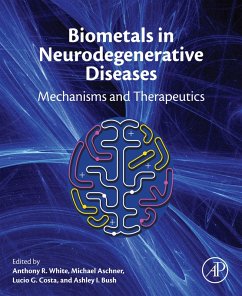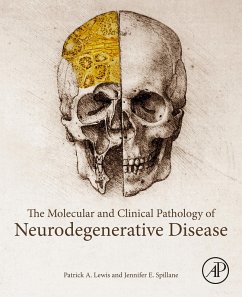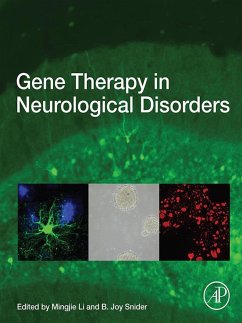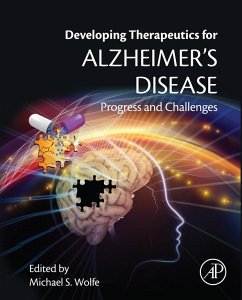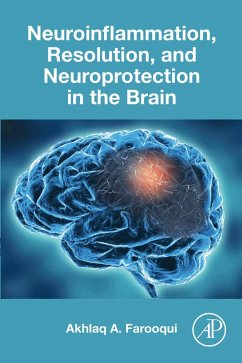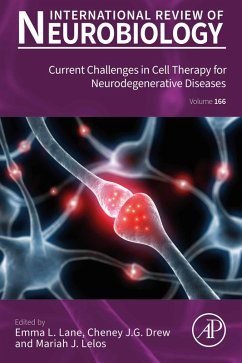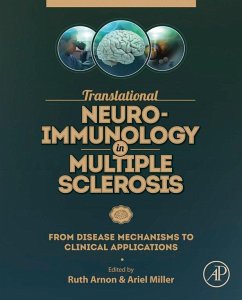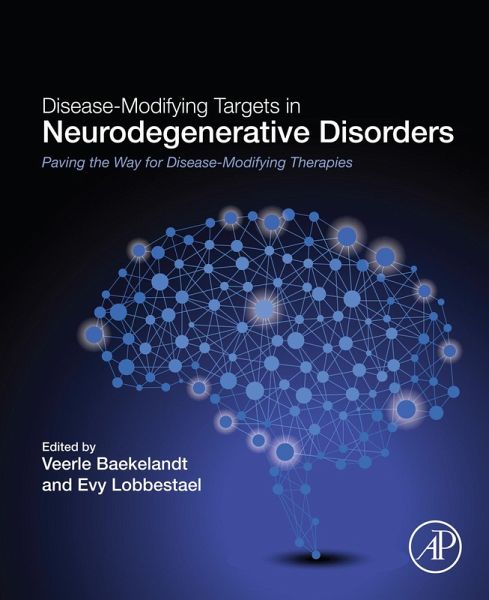
Disease-Modifying Targets in Neurodegenerative Disorders (eBook, ePUB)
Paving the Way for Disease-Modifying Therapies
Redaktion: Baekelandt, Veerle; Lobbestael, Evy
Versandkostenfrei!
Sofort per Download lieferbar
52,95 €
inkl. MwSt.
Weitere Ausgaben:

PAYBACK Punkte
26 °P sammeln!
Disease-Modifying Targets in Neurodegenerative Disorders: Paving the Way for Disease-Modifying Therapies examines specific neurodegenerative disorders in comprehensive chapters written by experts in the respective fields. Each chapter contains a summary of the disease management field, subsequently elaborating on the molecular mechanisms and promising new targets for disease-modifying therapies. This overview is ideal for neuroscientists, biomedical researchers, medical doctors, and caregivers, not only providing readers with a summary of the way patients are treated today, but also offering a...
Disease-Modifying Targets in Neurodegenerative Disorders: Paving the Way for Disease-Modifying Therapies examines specific neurodegenerative disorders in comprehensive chapters written by experts in the respective fields. Each chapter contains a summary of the disease management field, subsequently elaborating on the molecular mechanisms and promising new targets for disease-modifying therapies. This overview is ideal for neuroscientists, biomedical researchers, medical doctors, and caregivers, not only providing readers with a summary of the way patients are treated today, but also offering a glance at the future of neurodegenerative disorder treatment. - Provides a comprehensive overview of how key proteins in neurodegenerative disorders can be used as targets to modify disease progress - Summarizes how patients are treated today, providing a glance at future disease management - Includes intelligible and informative information that is perfect for non-specialists, medical practitioners, and scientists - Written and peer reviewed by outstanding scientists in their respective fields
Dieser Download kann aus rechtlichen Gründen nur mit Rechnungsadresse in A, B, BG, CY, CZ, D, DK, EW, E, FIN, F, GR, HR, H, IRL, I, LT, L, LR, M, NL, PL, P, R, S, SLO, SK ausgeliefert werden.





